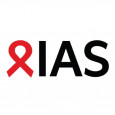IAS – the International AIDS Society – is deeply concerned at the passing of a bill that criminalizes same-sex relationships in Ghana, the latest in an upsurge of anti-gay political acts in Africa.
Ghana’s Parliament passed the Human Sexual Rights and Ghanaian Family Values Bill on 28 February 2024. It criminalizes LGBTQ relationships, as well as people who support LGBTQ rights.
Namibia’s lower house of Parliament recently passed a bill that bans same-sex marriages. And in Kenya, a bill before Parliament seeks to ban gay relationships, same-sex unions and LGBTQ activities and campaigns. In all instances, the bills propose harsh prison sentences and hefty fines.
“If these bills become laws, they will set back the substantial gains made towards ending the HIV pandemic as a threat to public health and individual well-being,” IAS President Sharon Lewin said. “This is the time for governments to be stepping up efforts to advance the HIV response, not push our efforts backwards. There is an urgent need for the governments of these countries to work with, not against, communities most vulnerable to HIV.”
In Africa, 33 of 55 countries punish gay relationships with imprisonment. In 2023 alone, six countries (Kenya, Ghana, Namibia, Niger, Tanzania and Uganda) took steps to tighten anti-gay laws, the largest number of countries pushing for these laws in recent years.
Some of these countries also have the highest burdens of HIV, and anti-gay laws are associated with a higher HIV rate among men who have sex with men in Africa.
At the same time some countries are pulling in the opposite direction. Seychelles, Lesotho, Botswana, Gabon and Angola have decriminalized same-sex relationships. Cabo Verde is considering an anti-discrimination law. And people persecuted based on their sexuality can still seek asylum in South Africa.
The IAS lauds the African countries that are taking steps to protect gay rights and, by doing so, protect progress in the HIV response.
We call on the Presidents of Ghana, Namibia and Kenya to stand against these discriminatory bills. At the IAS, we urge you to put people first and follow the science: criminalizing any population fuels the HIV pandemic by excluding people from testing, treatment and care.








Comments
Comments